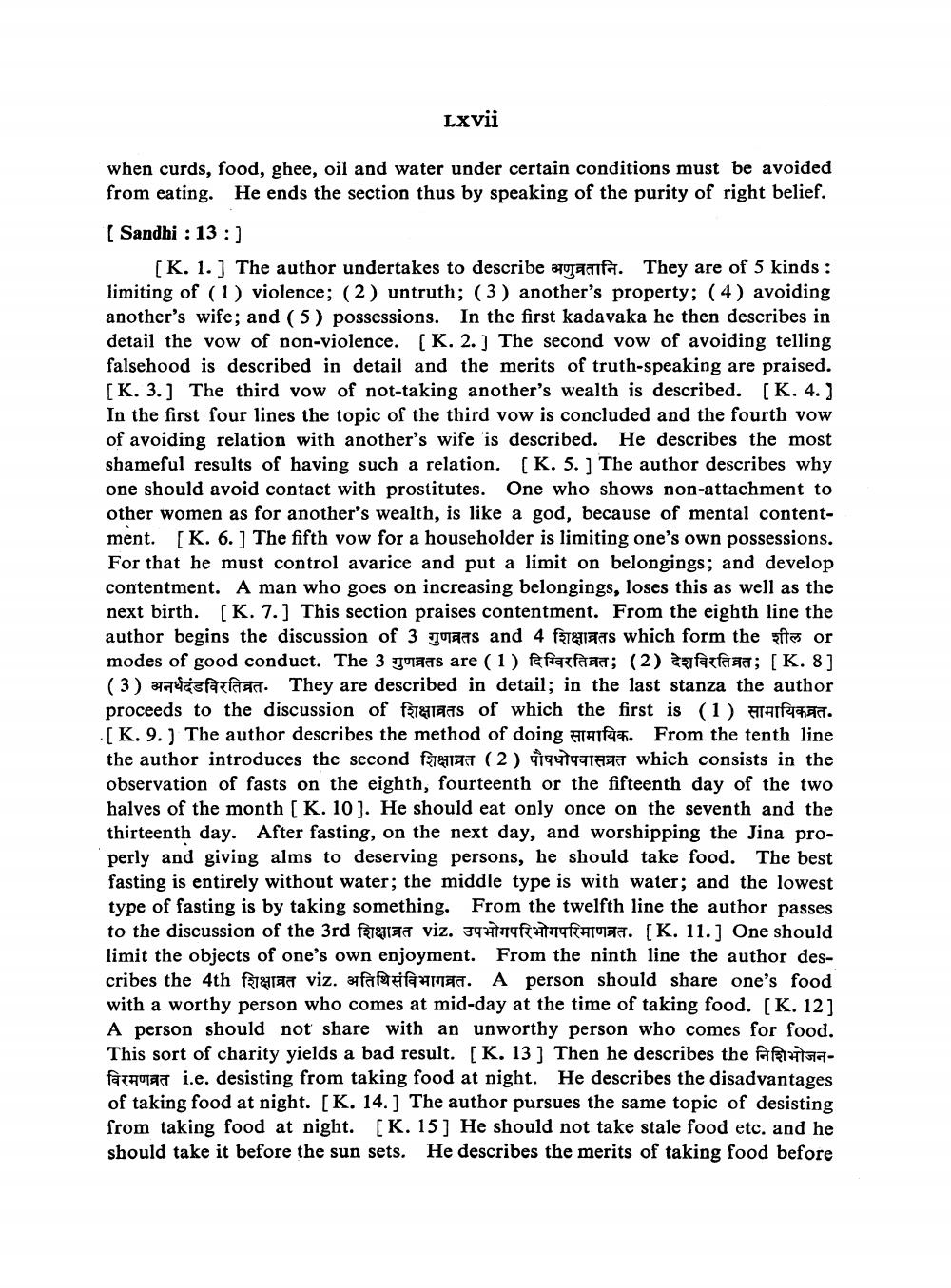________________
Lxvii
when curds, food, ghee, oil and water under certain conditions must be avoided from eating. He ends the section thus by speaking of the purity of right belief.
(Sandhi : 13:]
[K. 1. ] The author undertakes to describe anfa. They are of 5 kinds : limiting of (1) violence; (2) untruth; (3) another's property; (4) avoiding another's wife; and (5) possessions. In the first kadavaka he then describes in detail the vow of non-violence. (K. 2.) The second vow of avoiding telling falsehood is described in detail and the merits of truth-speaking are praised. [K. 3.) The third vow of not-taking another's wealth is described. (K. 4.) In the first four lines the topic of the third vow is concluded and the fourth vow of avoiding relation with another's wife is described. He describes the most shameful results of having such a relation. (K. 5. ] The author describes why one should avoid contact with prostitutes. One who shows non-attachment to other women as for another's wealth, is like a god, because of mental contentment. [K. 6.] The fifth vow for a householder is limiting one's own possessions. For that he must control avarice and put a limit on belongings; and develop contentment. A man who goes on increasing belongings, loses this as well as the next birth. [K. 7.) This section praises contentment. From the eighth line the author begins the discussion of 3 गुणवतs and 4 शिक्षाव्रतs which form the शील or modes of good conduct. The 3 quas are (1) fazlaga; (2) agfafaga; [K. 8] (3) ausfàtiaan. They are described in detail; in the last stanza the author proceeds to the discussion of शिक्षाव्रतs of which the first is (1) सामायिकवत. [ K. 9.) The author describes the method of doing ATAIF. From the tenth line the author introduces the second शिक्षाव्रत (2) पौषधोपवासव्रत which consists in the observation of fasts on the eighth, fourteenth or the fifteenth day of the two halves of the month ( K. 10]. He should eat only once on the seventh and the thirteenth day. After fasting, on the next day, and worshipping the Jina properly and giving alms to deserving persons, he should take food. The best fasting is entirely without water; the middle type is with water; and the lowest type of fasting is by taking something. From the twelfth line the author passes to the discussion of the 3rd fea1a7 viz. 347f 4f #117. (K. 11. ] One should limit the objects of one's own enjoyment. From the ninth line the author describes the 4th 19177 viz. afafaela Ama. A person should share one's food with a worthy person who comes at mid-day at the time of taking food. (K. 121 A person should not share with an unworthy person who comes for food. This sort of charity yields a bad result. [K. 13 ] Then he describes the ABSfacuta i.e. desisting from taking food at night. He describes the disadvantages of taking food at night. [K. 14.] The author pursues the same topic of desisting from taking food at night. [K. 15] He should not take stale food etc. and he should take it before the sun sets. He describes the merits of taking food before




